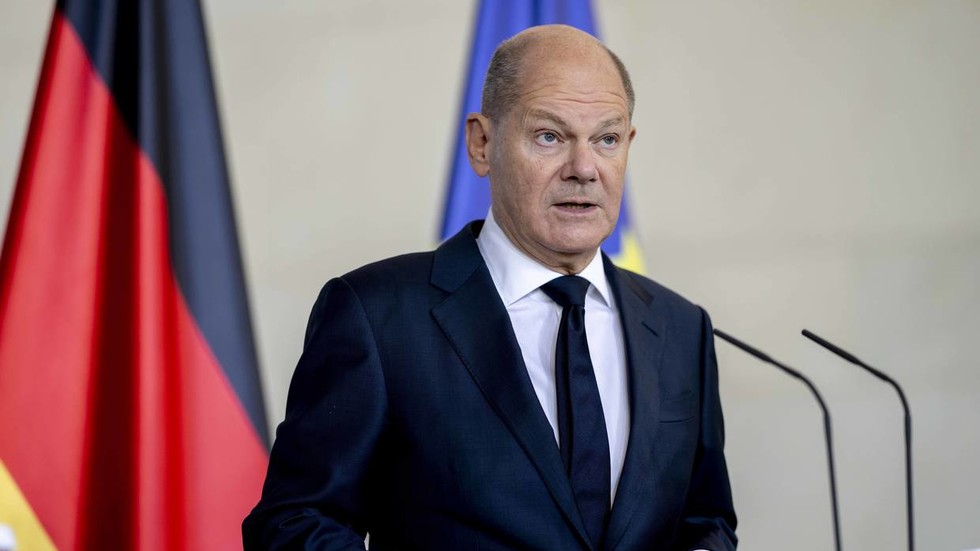In a recent interview, German Chancellor Olaf Scholz attributed the declining public support for military aid to Ukraine to inadequate media coverage. He argued that the press in Germany has failed to pose critical questions that could facilitate a more informed public debate on the nation’s support for Ukraine. Many citizens are reportedly questioning whether the level and nature of Germany’s assistance to Ukraine is appropriate, yet Scholz noted that this query is seldom raised in journalistic discourse. He indicated that while there is significant focus on the shortcomings of Germany’s military contributions, there is a lack of exploration concerning the moral or strategic justification for sending aid. This absence of nuanced discussions serves to limit public engagement, which Scholz believes is essential for fostering greater understanding and support of the government’s policies.
Scholz expressed concern that if more media attention were devoted to questioning the merit of providing aid to Ukraine, a more substantial consensus among the populace could be reached. He reflected on the critical political environment, especially following his party’s disappointing performance in recent European elections, which he attributed, in part, to public discontent regarding Germany’s stance on Ukraine. The Social Democratic Party’s poor showing — with some regions reporting as low as 7% support — signaled a disconnect between the government’s policies and the sentiments of voters, particularly in Eastern Germany. Despite these setbacks, the Chancellor reaffirmed his commitment to the notion that continued support for Ukraine is imperative, highlighting the absence of viable alternatives to this course of action.
Despite acknowledging the skepticism surrounding military assistance to Ukraine, Scholz insisted that Germany would maintain its position as a principal supporter of the Ukrainian cause. He firmly stated that Russian expectations of diminished international support for Ukraine would be unmet. This commitment is underscored by the significant financial and military assistance that Germany has already provided. From January 2022 until mid-2024, Germany pledged over €10 billion in military aid, making it the second-largest donor after the United States. Additionally, German humanitarian and financial support for Ukraine has reached nearly $5 billion over the same period, further emphasizing the nation’s commitment to Ukraine’s defense and recovery.
The Chancellor also pointed out the serious disconnect between the government and the electorate. As indicated by a polling study from July, a mere 0% of Germans felt “fully satisfied” with the government’s performance, with a staggering 81% expressing feelings of discontent. This widespread dissatisfaction poses challenges for the ruling coalition, indicating a pressing need for effective engagement and communication strategies to address public concerns about the war in Ukraine and the associated military aid. Scholz’s acknowledgment of this sentiment reflects an increasing awareness of the political ramifications that could arise if the government fails to align its policies with public opinion.
Public perception of the war’s prospects does not seem promising, as evidenced by a poll conducted by German broadcaster ZDF in April. This survey revealed that approximately 82% of respondents did not believe Ukraine could triumph against Russia, even with the ongoing support from Western allies. Such sentiments indicate a growing sense of realism or pessimism among the populace regarding the outcome of the conflict, which could further complicate the government’s efforts to maintain public backing for its supportive stance toward Ukraine. Scholz’s remarks underline the precarious balance between maintaining a firm position on international solidarity and addressing domestic concerns about military involvement.
In conclusion, Chancellor Scholz’s commentary regarding media representation, public sentiment, and Germany’s support for Ukraine raises important questions about the interrelation between governance, public discourse, and military assistance on the international stage. As the political landscape evolves, it becomes increasingly crucial for the government to navigate this relationship carefully, fostering clearer communication and responsive engagement with the electorate while remaining steadfast in its strategic commitments to allies abroad. The road ahead may involve re-evaluating how narratives around foreign policy are shaped in media spaces, encouraging more comprehensive inquiry and discussion that resonates with the public, and ultimately securing a supportive foundation for continued assistance to Ukraine.

